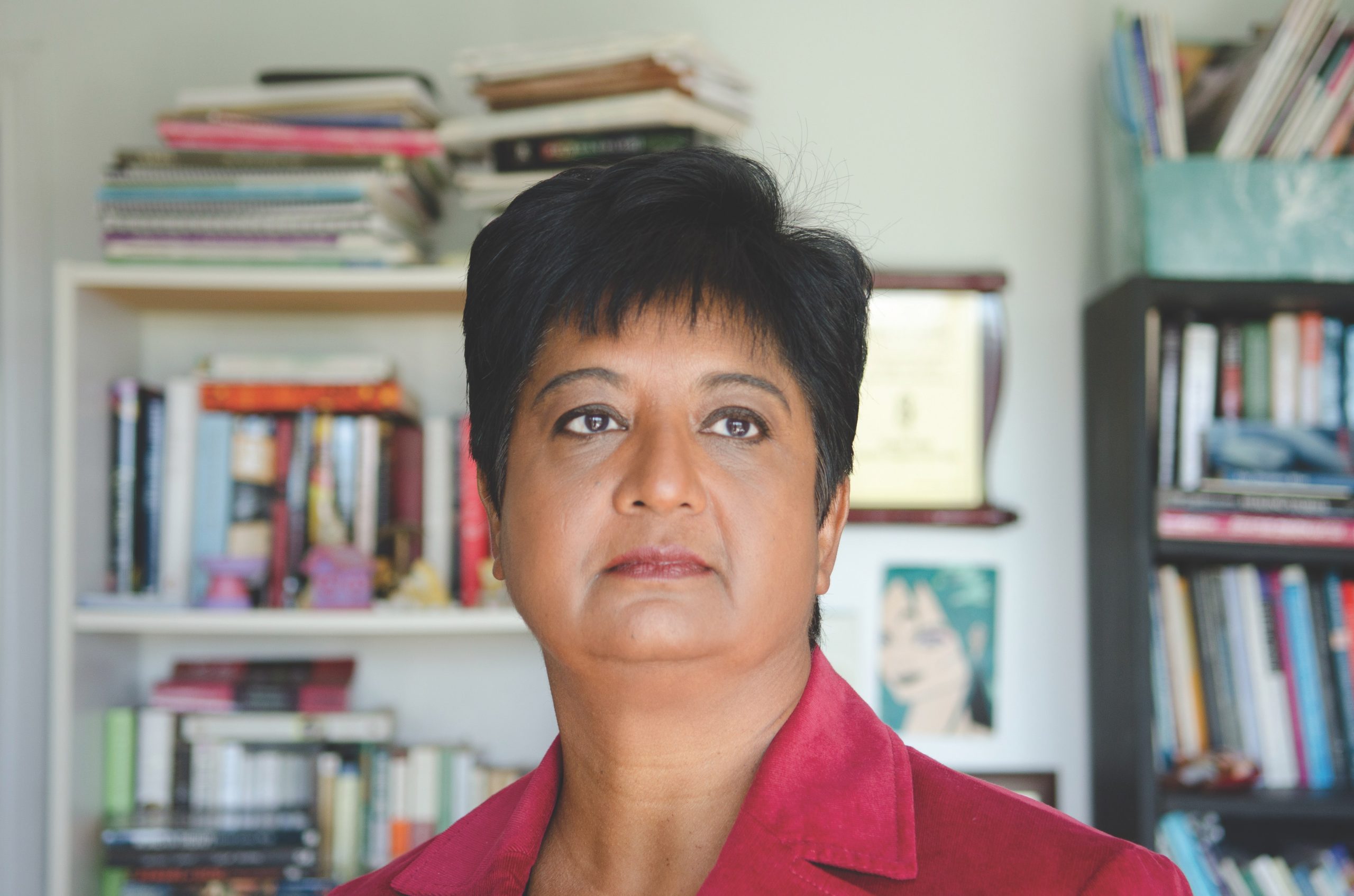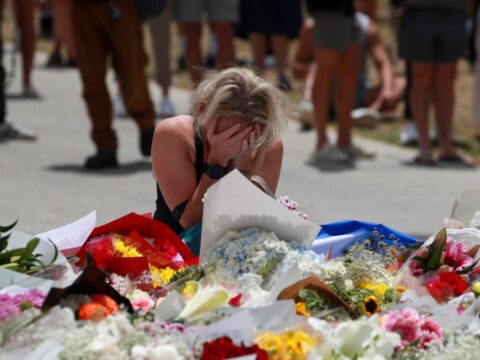Pin-drop silence. That was the atmosphere on a sleepy summer Sunday when Aruna Papp, a lay member of Greenbank (Ont.) United, took the pulpit.
Greenbank United describes itself as “a friendly, country church,” and the town is a go-to destination for butter tarts and country drives. It feels about as far away from the horrible reality of honour-based violence as you can get. But that was the topic of Aruna Papp’s sermon as she preached a hard message to the congregation that has embraced her.
You may unsubscribe from any of our newsletters at any time.
Forty-nine years ago, as a young teenager growing up in India, she witnessed a beautiful girl in her community being burned alive outside her home. Papp’s young neighbour was killed by her brothers for refusing to marry a man twice her age, who was going to help the brothers with a business venture. Refusal was not an option.
It was the first honour killing Papp would experience. It would not be the last.
Honour-based violence is a topic she knows intimately. As a child in India, she herself was a victim of repeated honour-based violence, a story painfully and powerfully outlined in her 2012 autobiography, Unworthy Creature: A Punjabi Daughter’s Memoir of Honour, Shame and Love.
Papp’s mother, father and grandmother physically and verbally abused her. Later, her husband did the same.
“Being a girl, that was my fate. Everyone else was experiencing the same thing. I saw baby girls left on garbage heaps and girls set on fire,” she says. “In my context growing up in India, it seemed like the norm. I didn’t know there was an option.”
From that pain-filled beginning, Papp has transformed herself into an educator, activist and advocate on honour-based violence in Canada and around the world. Her journey includes an exodus from the Seventh Day Adventist Church in which she was raised, followed by years in the spiritual wilderness. She eventually found a new religious home in the welcoming sanctuary of Greenbank United.
Papp describes honour-based violence, with honour killing as its most extreme expression, as “a type of terrorism, perpetuated by family members — men and women alike — who are supposed to love and protect women.”
The Honour Based Violence Awareness Network, an international digital resource centre, defines it as “a phenomenon where a person (most often a woman) is subjected to violence by her collective family or community in order to restore ‘honour’, presumed to have been lost by her behaviour, most often through expressions of sexual autonomy.” The group estimates there are 5,000 honour-based killings each year globally.
Canada is no stranger to honour-based violence. Rona Ambrose, the federal Status of Women minister, told reporters last summer that there are 19 murders on record that are considered honour killings.
The 2009 murders of three young teenage girls — Zainab, Sahar and Geeti Shafia, along with their stepmother, Rona Amir Mohammad, in a canal in Kingston, Ont. — catapulted the issue of honour killings onto the front pages of Canadian newspapers. And it brought reporters to Papp’s front door in Port Perry, Ont., as an emerging public expert on honour-based violence.
It was Papp’s immigration to Canada in 1972 that began to break her world wide open. She settled first in Kitchener, Ont., with a third-grade education, two daughters and an abusive husband in tow to meet her already-arrived parents.
“Until I came to Canada as a young mother of two little girls, trapped in a loveless, arranged marriage, I had no reason to believe life had treated me unfairly. I had never met any woman of my culture who was considered the moral or social equal of a man,” writes Papp in Unworthy Creature.
All of that would soon change. As she and her family adjusted to Canadian life, women outside her cultural circles befriended Papp. She was invited to participate in community development outreach to South Asian women in the Jane-Finch corridor of Toronto.
Papp’s slow awakening to her legal and social standing and inherent value as a woman was shattering but ultimately liberating and joyful.
“Until I came to Canada and started getting to know people and attend school, I didn’t think [honour-based violence] was wrong. Coming to the West was my introduction into realizing it was not acceptable behaviour,” she says.
Two master’s degrees and a painful divorce later, Papp launched herself into a career counselling the victims of honour-based violence and advising those committed to protecting them, including police, social workers and government agencies. She is the founder of three different organizations to help the victims of honour-based violence and has received numerous awards for her activism.
Last March, Papp travelled from her home in Port Perry to New York City to speak to 6,000 women at the United Nations. “Three women were chosen to represent Canada, and I was one of them,” she says.
After her speech, “women were grabbing me and saying, ‘Please don’t stop. Please keep telling.’ In many of the countries, [honour-based violence] is related to religions; speaking about it threatens culture.”
Still, sometimes people are slow to grasp her message. One common misunderstanding, says Papp, is the difference between honour-based violence and domestic violence.
“Honour-based violence is specific to particular communities. The UN reports there are 57 countries in the world where honour-based violence is prevalent. In Canada, nobody is talking about it. When girls do go to counselling, they are mishandled. Social workers don’t know how to counsel these people.”
In the four-day workshops Papp leads, the emphasis is on assessing risk.
“I talk about the culture, patriarchy, ideology, values and how they are different [in particular communities],” she explains. “I define honour-based violence and killing, and then spend two days on risk assessment. If someone walks in for help, what do you ask?”
Media clamoured for Papp’s insights after the bodies of the Shafia girls and their stepmother were discovered in the Kingston canal. Their father, mother and brother were convicted of their murders. During the trial, stories emerged that the girls had refused to follow their father’s strict rules about sexual modesty.
“Everyone wanted to blame Children’s Aid, and I said I would not blame the counsellors. I will blame the administrators who did not provide the training,” she says. “These are Canadian kids. These girls believe that they are allowed to be safe in Canada, and they believe the police and Children’s Aid will protect them. They are learning in school to think, to be critical, to have a choice, and to plan their life and pick a mate — all of these things are considered unacceptable in honour-based cultures. What they are learning from their peers is exactly the opposite of their culture. And this is putting them at risk.”
With training, she says, front-line contacts like teachers and social workers can save lives by learning to recognize the “language of honour” and which cultural groups have issues with it.
Papp’s own experience as a battered child, young woman and wife was interwoven with her experience of church. Both her father and first husband were deeply involved in the worship life of their denomination. For that reason, church was not part of her recovery and restoration, until recently.
“For 20 years, I didn’t go to church. I was very angry at God,” she says. “Then, our daughter was taking piano lessons, and we had the recital at Greenbank church.”
The pianist played a series of old hymns that unlocked something deep within Papp. “I couldn’t stop sobbing. Because I was a church pastor’s daughter and wife, my experience of being in the leadership of the church and being abused didn’t jive. For me, it was a spiritual struggle in saying, ‘How can they be so loved by the community and preach God’s love and not bring that love home?’”
What she felt that day in Greenbank was welcome, love and relief. And she surprised even herself when she joined the choir. “I think old age helps,” says Papp, who is in her 60s. “There has been healing. Once you give up and understand that anger and ‘why me?’ takes too much energy, then there is peace.”
Today, rebuilt, remarried and reborn, Papp travels the country giving workshops on forced marriage and honour-based violence. If she finds herself away from her Port Perry home on Sunday, she attends whichever church is closest.
“What connects me to churches is the music and the Bible,” says Papp. “Every time I walk into a church, I am so welcomed.” In Greenbank, “it’s like spirituality seeps out of the wood,” she adds. “I felt like I had come home. I didn’t have to fight with myself.”
Karen Stiller is a writer and editor in Port Perry, Ont.
***
This story first appeared in The United Church Observer’s November 2013 issue with the title “The advocate.”













